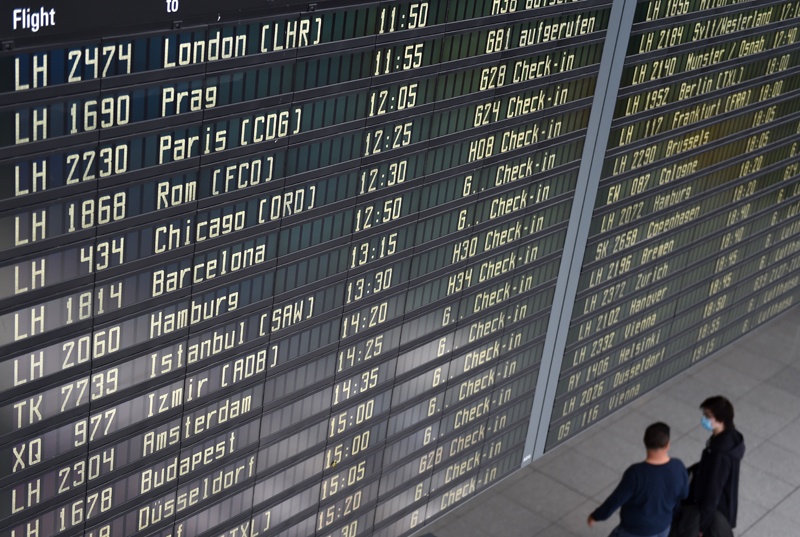PARIS: The United States' decision to lift restrictions on incoming travellers vaccinated against COVID-19 was met with a sigh of a relief by the global airline sector, which has been dealt a body blow by the pandemic. With transatlantic flights traditionally among the most lucrative for Europe's biggest airlines, the Monday announcement was "formidable news" for a sector that has hemorrhaged tens of billions of euros over the past 18 months, Air France-KLM chief Benjamin Smith told AFP.
For most of Europe's flag carriers-such as Air France, British Airways and Lufthansa-the restrictions on long-haul routes across the Atlantic were particularly hard to swallow. Air France-KLM, for example, generates 40 percent of its sales from its North Atlantic services, and for Germany's Lufthansa, the proportion is 50 percent. "Today's news... marks an historic moment," said British Airways chief Sean Doyle. "Our customers should now feel that the world is reopening to them and they can book their trips with confidence."
US airlines such as United, Delta and American are much more domestically orientated and less dependent on international services, which account for 25-30 percent of revenues. But they, too, welcomed the news. "Today's announcement marks a positive step in our nation's recovery," said the head of the industry association Airlines for America, Nicholas Calio. Sister organization Airlines for Europe tweeted that it similarly "applauds the decision", which would "give a much-needed boost to trans-Atlantic traffic & #tourism and will reunite families and friends".
The International Air Transport Association, or IATA, which has 290 member airlines accounting for 82 percent of global air travel, described it as "a major step forward". "This is excellent news for families and loved ones... It's good for the millions of livelihoods in the US that depend on global tourism. And it will boost the economic recovery by enabling some key business travel markets," IATA director general Willie Walsh said. IATA has been calling for months now for travel restrictions to be "guided by the science" and take into account travellers' vaccination status.
Later than expected
Europe's airlines had been hoping for transatlantic routes to be reopened in time for the key summer holiday season. But while Europe reopened its internal borders, Washington remained cautious. And transatlantic traffic this year was less than half than the levels recorded in 2019. The US decision was "actually a little later than we expected given what we know about how effective the vaccines are. We expected it in the summertime," said Colin Scarola, an analyst at CFRA Research.
But even if European airlines are now ready to restart the engines of more aircraft heading across the Atlantic, recovery will still be slow, warned George Dimitroff, an analyst at air transport data specialist Ascend by Cirium. "We would not expect to see an increase in airline schedules right away, apart from the busiest routes," he said. "There may be additional capacity added around the year-end holiday period, but the more significant improvements are likely to come in March 2022 when airlines gear up for their summer schedules," he said. Burkett Huey, an analyst at Morningstar, pointed out that "if you don't fill an aircraft at 75-80 percent, the trip won't be profitable. You need travellers from both sides."
Dimitroff said he expected "business travel to start to pick up in the fourth quarter of this year... as European business travellers will be able to visit US clients and suppliers." But analyst Scarola was more cautious. "While it is definitely a step in the right direction, it really does not improve the uncertainty around the two key things that are going to be needed for international travel recovery: how is the pandemic going to play out in the coming months... and will a big piece of business travel be missing because of the virtual meeting tools that are now available?" - AFP




